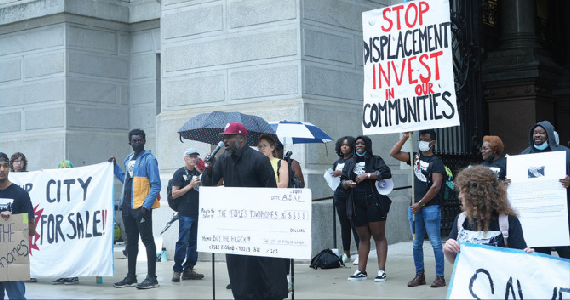Advancing Anti-racism Evidence and Solutions to Transform the Health of Black Communities
 © 2022 Carlos Nogueras/AL DÍA News Via Getty Images
© 2022 Carlos Nogueras/AL DÍA News Via Getty Images
December 13, 2022
Researchers from The Ubuntu Center on Racism, Global Movements and Population Health Equity at the Dornsife School of Public Health authored a comment for a special issue of The Lancet on December 8, 2022, titled “Healthy and thriving: advancing anti-racism evidence and solutions to transform the health of Black communities.”
Authors of the comment include Sharrelle Barber, ScD, MPH, assistant professor of in the department of Epidemiology and Biostatistics and director of The Ubuntu Center, Andrêa Ferreira, PhD, postdoctoral fellow at The Ubuntu Center, Ashley B. Gripper, PhD, MPH, assistant professor in the department of Community Health and Prevention and The Ubuntu Center, and Jaquelyn Jahn, PhD, MPH, assistant professor in the department of Epidemiology and Biostatistics and The Ubuntu Center.
The piece was included in the special issue on Advancing racial and ethnic equity in science, medicine, and global health and highlights the critical role that public health plays in transforming health in Black communities.
“With the ongoing and future public health challenges that disproportionately impact Black communities globally, there must be a sustained commitment to anti-racism evidence and solutions informed and propelled by local and global movements. At this critical juncture in our field and collective existence, there is an opportunity to forge bold new paths that repair harm, advance our collective liberation, and ensure that Black communities across the globe are healthy and thriving.”
Read the full article
Also in this issue, The Lancet featured a profile piece about The Ubuntu Center’s mission, research, and approach to advancing antiracism scholarship and solutions in the United States and globally. Barber discusses the origins of the Center’s name as well as how the Center fosters connection between academics, community residents, organizers, and activists.
“We are focused on both research and activism, and we want to challenge mainstream notions about who gets to produce knowledge. There is so much expertise that lies outside academia that we want to integrate into our work.”
Read the full article